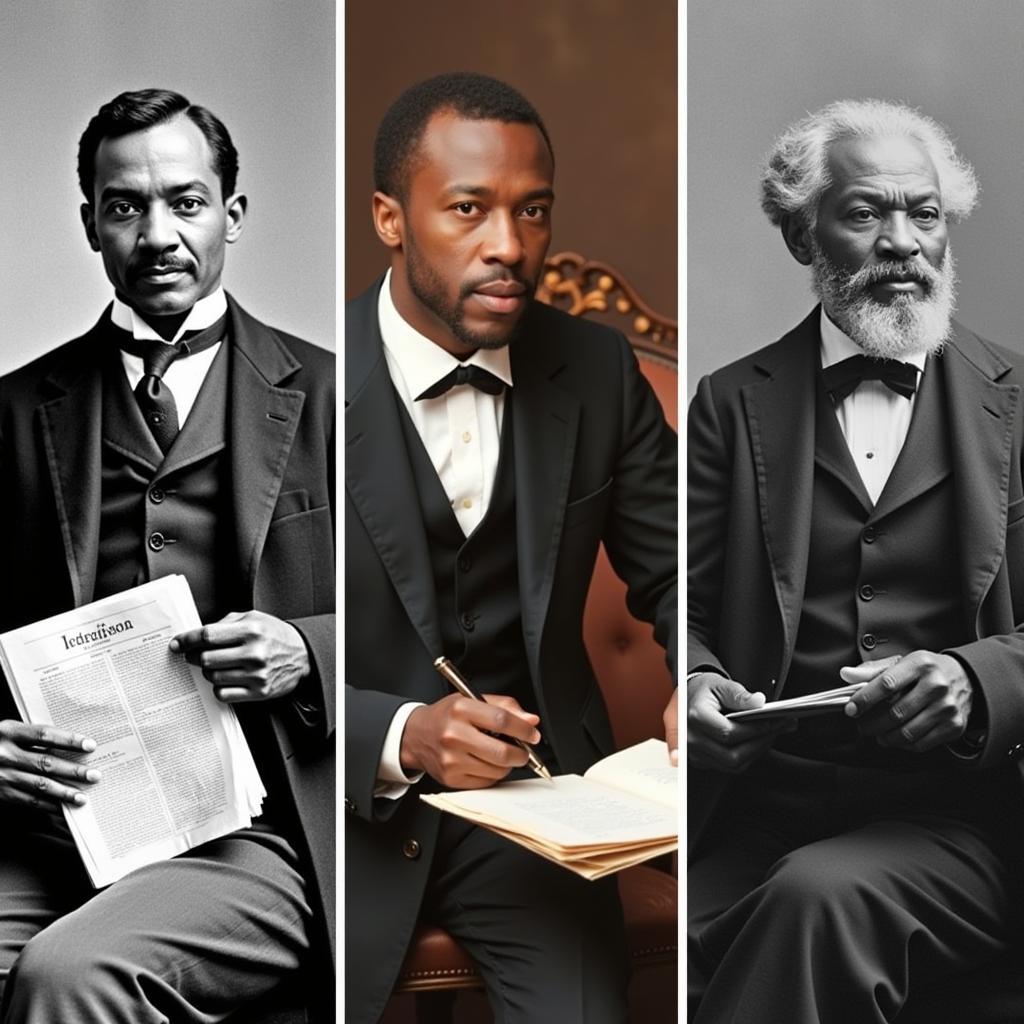The American Anti-Slavery Society (AASS), a pivotal organization in the fight against slavery in the United States, is a key topic in APUSH. Understanding its formation, goals, and impact is essential for grasping the complexities of the antebellum period and the eventual eruption of the Civil War. This article delves into the AASS’s history, influence, and lasting legacy.
The Genesis of the American Anti-Slavery Society
The AASS, founded in 1833 in Philadelphia, emerged from the growing abolitionist movement. Fueled by moral outrage and a commitment to human rights, reformers like William Lloyd Garrison, Arthur Tappan, and Frederick Douglass dedicated themselves to the immediate and unconditional emancipation of all enslaved people. They rejected gradualism and colonization schemes, advocating for full citizenship and equality for African Americans.
This unwavering stance set the AASS apart from other anti-slavery groups and sparked controversy even within the abolitionist movement. The Society’s radicalism attracted both fervent supporters and fierce opposition, contributing to the escalating tensions over slavery that would eventually tear the nation apart.
Key Figures and Strategies of the AASS
The American Anti-Slavery Society APUSH definition must include the significant contributions of its prominent members. William Lloyd Garrison, the Society’s fiery voice, published The Liberator, a powerful abolitionist newspaper that became a cornerstone of the movement. Arthur Tappan, a wealthy merchant, provided crucial financial backing, while Frederick Douglass, a former enslaved person, lent his eloquent voice and personal experiences to the cause.
 Key Figures of the AASS: Garrison, Tappan, and Douglass
Key Figures of the AASS: Garrison, Tappan, and Douglass
The AASS employed a multi-pronged approach to achieve its objectives. They circulated anti-slavery literature, organized lectures and public meetings, petitioned Congress, and supported the Underground Railroad. These efforts aimed to raise public awareness, mobilize support for abolition, and directly assist enslaved people seeking freedom. How did the American Anti-Slavery Society affect America? It brought the issue of slavery to the forefront of national discourse, forcing Americans to confront the moral implications of the institution.
The American Anti-Slavery Society’s Impact and Legacy
The American Anti-Slavery Society’s influence extended far beyond its membership. By relentlessly challenging the status quo, the AASS played a crucial role in shifting public opinion and creating a moral climate conducive to emancipation. what is one impact of this amendment on american society Though the path to abolition was long and arduous, the AASS’s persistent efforts laid the groundwork for the eventual triumph of freedom.
“The AASS’s commitment to immediate and complete emancipation was truly groundbreaking,” explains Dr. Evelyn Carter, a historian specializing in the antebellum period. “Their unwavering stance, despite intense opposition, ultimately contributed to the dismantling of slavery in America.”
The AASS’s legacy continues to inspire social justice movements today. Its dedication to human rights and equality serves as a powerful reminder of the importance of speaking out against injustice and fighting for a more just and equitable world. The American Anti Slavery Society Apush Definition highlights its pivotal role in shaping the course of American history.
Conclusion
The American Anti-Slavery Society, a cornerstone of the abolitionist movement, played a critical role in the fight to end slavery in the United States. Its radical stance, dedicated members, and multifaceted strategies contributed significantly to the eventual triumph of freedom. The AASS’s legacy continues to inspire social justice advocates worldwide, reminding us of the power of collective action in the pursuit of a more equitable world.
FAQs
- When was the American Anti-Slavery Society founded? 1833
- Who were some of the key figures in the AASS? William Lloyd Garrison, Arthur Tappan, Frederick Douglass.
- What were the AASS’s main goals? Immediate and unconditional emancipation of all enslaved people.
- What strategies did the AASS use? Publishing anti-slavery literature, organizing lectures and meetings, petitioning Congress, supporting the Underground Railroad.
- What was the AASS’s impact on American society? It significantly influenced public opinion and contributed to the growing momentum of the abolitionist movement.
- Why is the AASS important to study in APUSH? It helps students understand the complexities of the antebellum period and the causes of the Civil War. what is one impact of this amendment on american society
- How does the AASS’s legacy continue to resonate today? It inspires continued activism for social justice and equality.
Need Help?
For further assistance or information, please contact us:
Phone: 02043854663
Email: [email protected]
Address: Khu 34, Bac Giang, 260000, Vietnam.
Our customer service team is available 24/7.